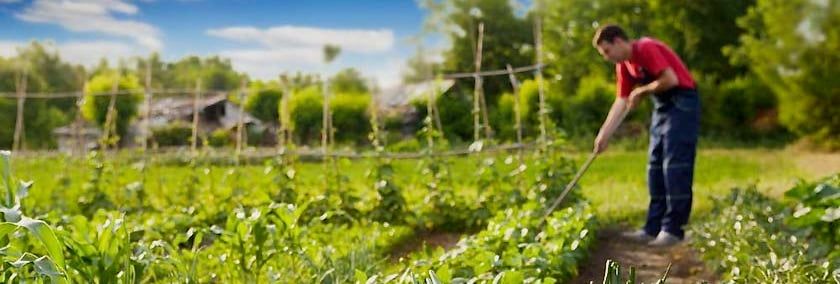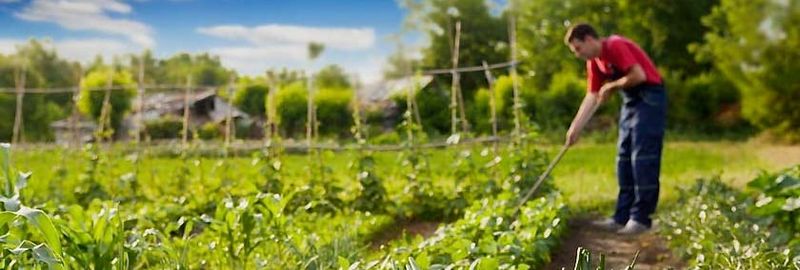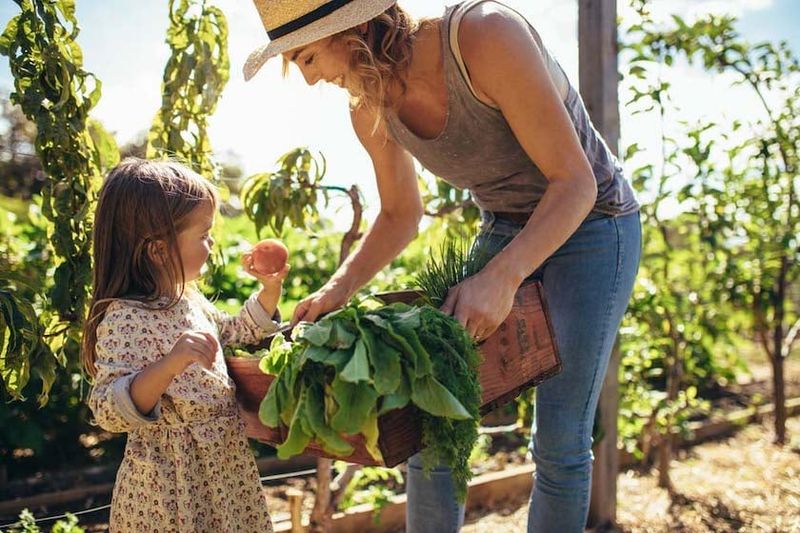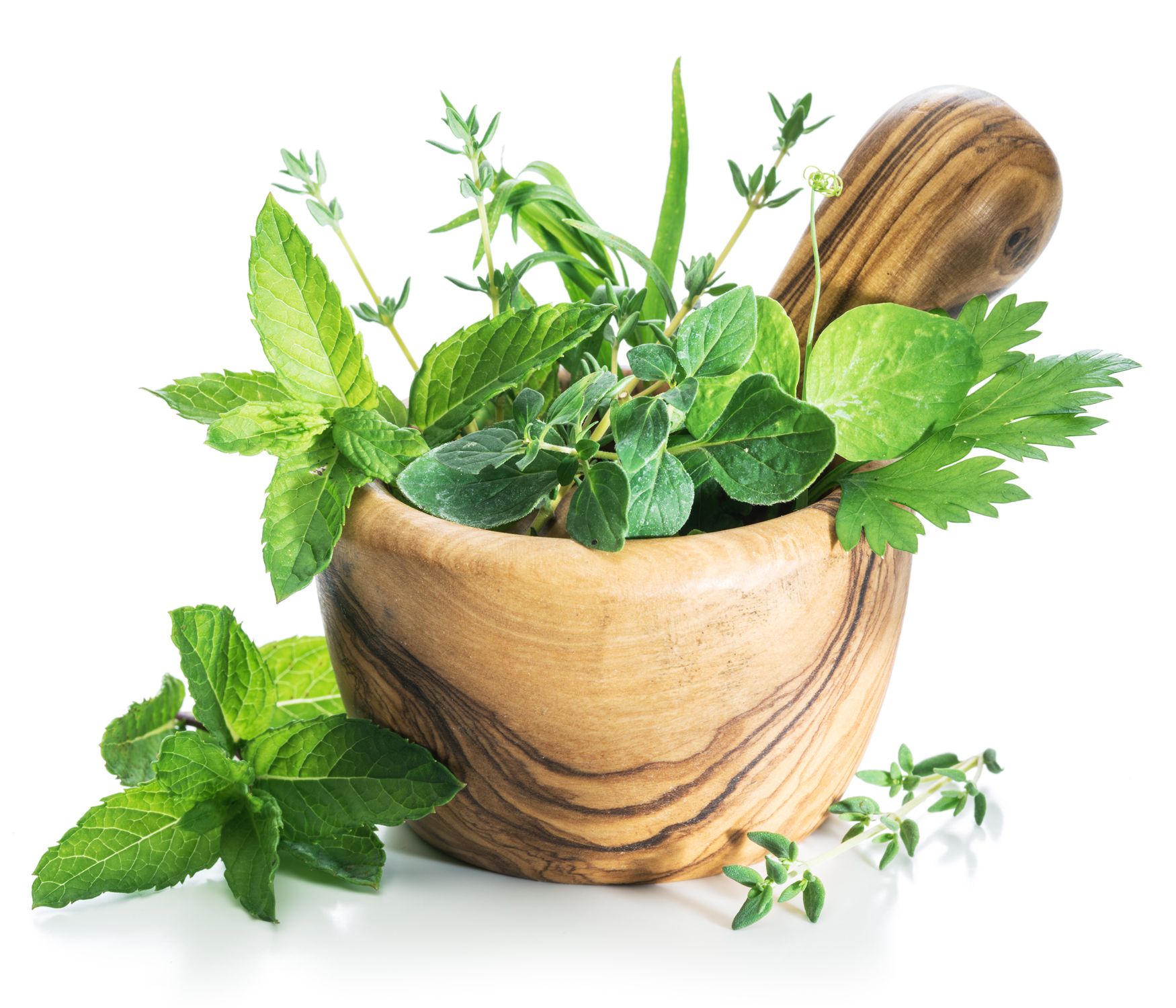Midseason Garden Madness


As you read this, your garden is almost in full swing. The late last frost date for us in Minnesota (typically May 4) means that by early June we’re seeing blossoms on tomatoes and peppers. July promises even more. Beans and peas will be nearly ready to start producing by the end of the month.

This is the time when keeping your garden pest-free is critical to great yields and seasonal longevity.
Battling pests, organically
Insects are usually seen as Enemy Number One when it comes to garden pests. But these little guys aren’t the only critters capable of ruining beautiful blooms, destroying vegetables, and even killing off entire plants. Everything from nearly invisible fungi and bacteria to groundhogs and deer will do what they can to get to your precious food and flowers.
Insects come in all variety of shapes and size. Some, like bees and ladybugs, are beneficial insects as either pollinators or predator insects. Aphids and spider mites are anything but beneficial.
Because they are capable of draining the life out of plants and bringing in diseases, getting control of insects early is important for a full season of gardening output.
Here are some ways to deal with the smaller pests:
Anti-bug netting works especially well during critical times (like after transplanting) by allowing most of the sunlight, wind, and water to pass through without letting in insects. Netting can be utilized as needed, but remember that certain plants need pollination so they must be removed to allow that to happen.
Neem oil, Tea Tree oil, and anti-insect sprays with Castile soap are also effective methods for insect control. It should be noted that the sprays must touch the insect to be effective. Also, applying these sprays when the plants are stressed from drought or heat may have a negative effect on overall plant health.
What about larger animals?
While we usually think of the small pests, bugs and diseases, you can’t forget about the big ones: rabbits, deer, house pets, raccoons, and more.
Rabbits demolished my onion patch last year before I was able to get some fencing up. Deer are notorious for eating their way through gardens and feasting on tree buds.
A viral video of a groundhog eating a man’s garden was an eye opener for many. (The groundhog would snack right in front of the motion-sensor camera. The gardener named him Chunk and surrendered—Chunk now eats all he wants.)
How do you prevent the invasion? Simple chicken wire will keep out most small animals if properly staked. If a fence isn’t feasible, or isn’t keeping out the larger animals, a product like Havahart’s Critter Ridder will keep the animals away.
We’ve seen first-hand how well Critter Ridder works: our mother has been battling squirrels on our deck—they’d been getting into the plants and flowers for years. It worked so well she uses it religiously every year.
Can you battle diseases organically?
Diseases are the most dangerous for garden health. Leaf Spots, Blight, Powdery Mildew, Rust, and Wilt are all diseases that will ruin your plants and can even ruin your entire garden.
While diseases like Blight can damage the fruit and leaves, others like Tomato Wilt can ruin entire gardens for years due to the lifespan of the disease-causing fungi. This is because it is transmitted through plant matter. When the infected plant matter falls into the soil and begins to decay in your garden, it will spread the disease, leading to future infections.
There are options for treating the plants, including natural anti-fungal sprays involving hydrogen peroxide, baking soda, and milk. Many gardeners are uncertain about the effectiveness of these sprays.
The only sure method of treatment is removing all of the infected plant material from the garden.
Dispose of the plant material into the garbage, bury it in a hole in the ground at least one foot deep, or burn the affected plant material in a bonfire. This will eliminate the diseased plant matter and prevent the fungi from growing again by keeping the area dry.
Harvest efficiently

Preventing yield lost is step one to having a great crop. Nothing is more disheartening than spending the time and effort to raise plants and have them underproduce. Make sure your garden is at its peak throughout the harvesting season:
Harvest early and often. Many veggies can be harvested while still immature. When this happens many plants will actually turn up their reproduction and produce more, longer. Daily picking of veggies like squash and beans can give you more pounds of produce than picking every few days.
Plant crops in succession. Some crops like sweet corn and lettuce ripen consistently. If you plant some crops a few weeks apart, you can eat throughout the growing season. An additional way to do this is to plant crops with differing maturities on the same day.
Keep your plants fed. By June, the fertilizer you planted with may be well into its usable life cycle. By topdressing your garden with additional fertilizer you’ll not only help keep your plants healthy but you’ll make sure that the stress of growing the fruit won’t cannibalize the plant itself. Remember, annuals are going to put everything they can into the next generation of plant so by feeding the plant you’ll be able to extend its lifespan and increase yields.

Acreage Life is part of the Catalyst Communications Network publication family.















